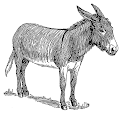LIST: Car Songs, Vol. 2
Our continuing saga of songs about car culture takes to the highway...
Vol. 2: Why Don’t We Do It In The Road?
1. "Car Wheels on a Gravel Road" Lucinda Williams
2. "Amarillo Highway" Robert Earle Keen
3. "Interstate Love Song" Stone Temple Pilots
4. "Road Leads Where It's Led" Secret Machines
5. "Main Road" Victoria Williams
6. "Highway 61" X
7. "Hillbilly Highway" Steve Earle
8. "Dirt Track Date" Southern Culture on the Skids
9. "Route" Son Volt
10. "Motorway to Roswell" Pixies
11. "Red Barn Road" Greg Davis
12. "The Long Winding Road" Beatles
13. “Indie 500” The Wrens
14. "Rocking Horse Road" Elvis Costello
15. "Lonesome Road" Junior Kimbrough
16. "The Hard Road" Smog
17. "Out on the Road" Jay Farrar
18. "True Love Travels on a Gravel Road" Afghan Whigs
19. "Cross the Road, Molina" Songs: Ohia
20. "Big Road" Jon Spencer Blues Explosion
REVIEW: Dizzee Rascal "Boy in da Corner"
Sometimes things from England scare me. I’m not talking about simple xenophobia. I couldn’t care less about silly accents and bad dentistry. I’m not even talking about the Spice Girls. No, I’m talking about Dickens. The plague. “A Clockwork Orange” (Kubrick may have been from NYC but the film is definitely British). Maybe it’s a product of centuries of imperialism or all the creepy fog in London, but there is a certain credibility to things that go bump when they come from the UK, and the more foreboding and grim the scenario, the more likely I am to believe it. “Boy In Da Corner” plants Dizzee Rascal squarely atop one such bump, followed by a series of canned electronic whirs, and another bump-bump. Then the whole thing goes to splendid pieces.
Dizzee Rascal (Dylan Mills) is the so-called UK garage phenom from London hyped by NME and the likes as the street-to-studio artist of the year or decade or insert-accolade-here. There is the necessary talk of his tender years (18, though no one stays that way for long) and his accomplished rapping given the former. While his vocal skills and writing are superb for any age his production values show a general lack of balance and depth, which, like the better things in life, should improve with time and practice.
What makes this album notable is its blend of brutal, youthful honesty and the mature clarity with which he comments on the hardships around him. Like many successful artists, he is a keen witness to life’s events however mundane, nuanced or outrageous they seem. He presents himself as a plainspoken (if outspoken) man of the people trying to walk the straight line without getting caught up in preachy politics or overly defiant hip-hop attitude. Shit gets in his way, however, and you’re going to hear about it.
For me the disc doesn’t get started until the third track, “I Luv U.” It features a sampled female voice, buoyant with the false sincerity of anime, reciting the title lyric into meaningless repetition. The point / counterpoint chorus pits Rascal against guest vocalist Jeanine Jacques in a sexually charged sparring match full of puffed up jealousy over, what else, a rival lover. It is also just meaty enough to make up for the rehashed “laser” effects slashing through the foreground of each verse.
A push-pull of emotions threatening to boil over while being held at a distance seems to generate the defensive stance assumed in “I Luv U.” The same friction is palpable throughout most of the album, as is Dizzee’s apparent mistrust of women, culminating in the plainly chauvinistic “Jezebel” late in the record. (It seems like middle-aged milquetoast rappers are the only ones able to respect women in verse without completely sexualizing them. Sorry MCA). “Fix Up, Look Sharp” finds another high water mark and a leavening agent for Dizzee’s vocal edge by sampling the chorus of Billy Squire’s “The Big Beat.” The song’s stadium-sized drums create a rare “live” sound, the end result of which is a breath of fun amidst more challenging tracks, most of which feel as though they were recorded alone in a small dark room after a fight.
And this is why I’m afraid. There is something so obvious about a tattooed thug in a low-slung cap, 9mm sticking out of his waistband and thirty pounds of platinum around his neck, not to mention his similarly outfitted entourage. I can see them coming far enough away to avoid them altogether. But the skinny kid in the corner scowling beneath his hood, spitting incoherently at the floor – he’s seething, resourceful, desperate, and he’s just getting started. His is the emotional sound of things breaking, of things unraveling fast and people getting hurt. He seems willing to take responsibility for it too, though the line between premeditation and self-defense has been irrevocably blurred.
Subscribe to:
Comments (Atom)

